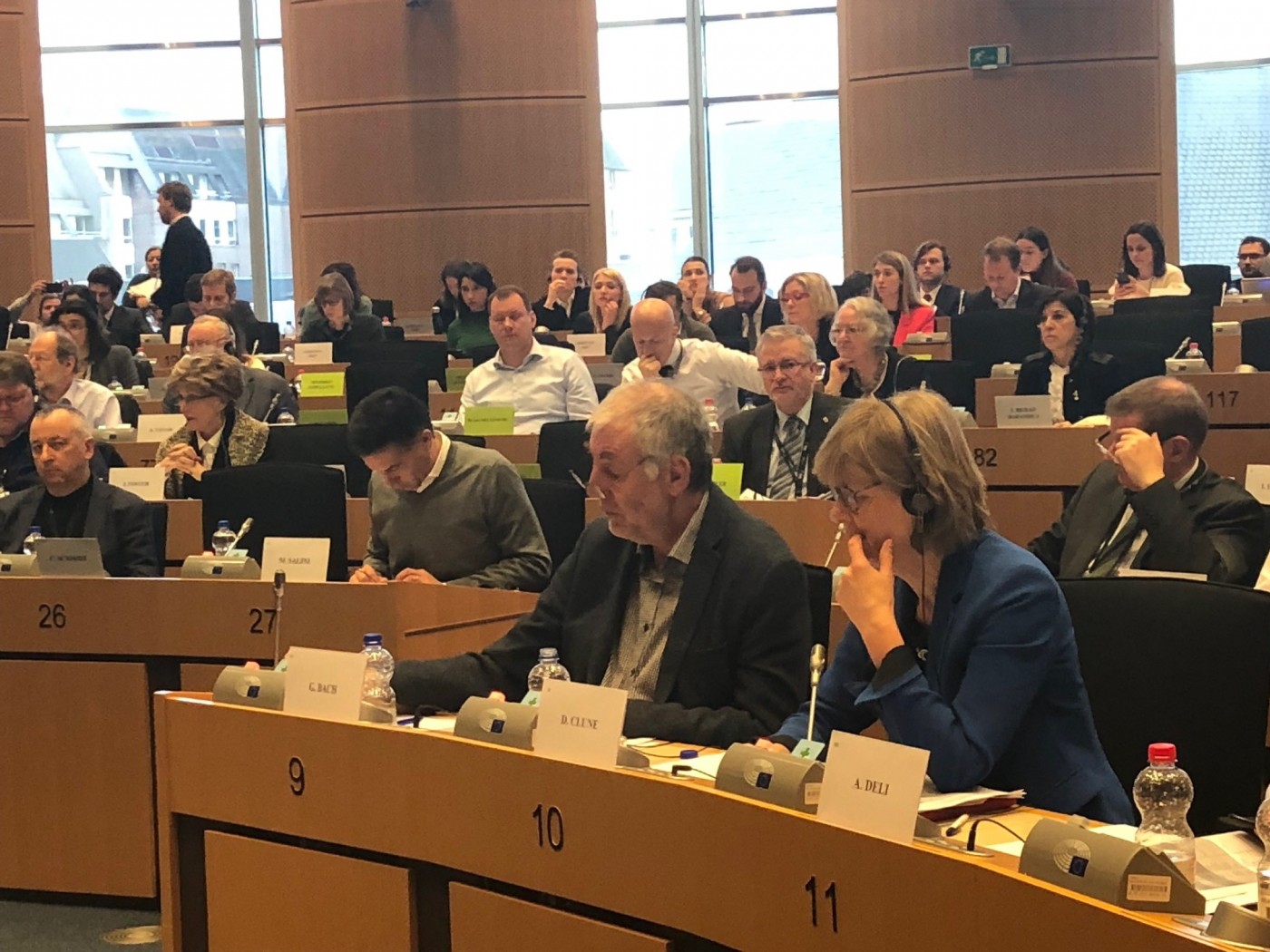Vote Clune report: ESPO welcomes the outcome but remains highly concerned about adding another reporting layer through the creation of an EU interface
10 January 2019
This morning, the Transport Committee of the
European Parliament adopted its position on the
Commission proposal for a regulation establishing a European Maritime Single
Window Environment. In many ways, the
adopted Clune report improves the Commission proposal and is a solid basis
for finding a compromise with the Council on this long awaited proposal.
An overall
majority of the TRAN MEPs voted in favour of the approach of the rapporteur Ms
Deirdre Clune, who very rightly puts the emphasis on the harmonisation of data,
on the balance between a right level of harmonisation and the need to keep pace
with ongoing technological developments, on the respect for existing well-functioning
reporting channels, such as the Port Community Systems and the investments made
in that respect.
“Many of the proposals made are an important
step forward for the maritime and port industry, while leaving enough
flexibility to allow bottom-up developments and investments which aim at
digitalising, not only the reporting formalities data chain as such but also the
much wider data chain to the benefit of the whole logistic chain and wider port
community. The reporting formalities issue is a very complex but very important
issue. We are very grateful for the high level of understanding the rapporteur
and shadow rapporteurs have shown over the last months”, says ESPO
Secretary General, Isabelle Ryckbost, commenting the outcome of the vote.
ESPO regrets, however, that the realistic and straightforward EP approach
is brought out of balance by the adoption of the proposal to develop an EU
Common Access Point Interface. According to this proposal, a
centralised EU Common Access Point Interface should be set up, on top of the
harmonised National Single Windows and the Port Community Systems.
“The current Commission proposal is the result of in-depth evaluations of the different possible options to create a more efficient reporting environment for all stakeholders. The Commission has chosen the pathway of the harmonisation of the National Single Windows. The creation of an EU Common Access Point Interface on top of this, as called for in the adopted EP text, means a duplication of the to be harmonized National Single Windows. It would create an extra reporting layer, would add on administrative burden, complexity, costs and thus risks to result in adverse effects in terms of efficiency. We hope that the negotiators will go back to the Commission proposal on that point and will understand that adding on layers will not facilitate but complicate the maritime reporting environment. Let us try to deliver on the harmonisation of the data and of the National Single Windows”, adds Isabelle Ryckbost.
 TRAN Members voting Clune report
TRAN Members voting Clune report
Currently,
Port Community Systems (PCS) and National Single Windows (NSW) are the main
entry points through which data is reported to the relevant authorities. Under
the Commission’s proposal, the National Single Windows are to be harmonised,
and will therefore meet the demands of data declarants (shipping lines or their
agents) for a more harmonised reporting environment. In addition to these NSW’s,
ports and shipping lines who are
currently working with a PCS as a one-stop-shop for both the reporting
formalities and all other services rendered to stakeholders in the logistics
chain will be able to continue, on the condition, of course, that they are
compatible with the harmonised NSW’s.
Besides adding
complexity, the establishment of an EU Common Access Point Interface would imply
considerable investments, to be
borne by the European Union, which are not yet defined or budgeted.
Additionally, Member States will have to
invest in order to link their National Single Window systems to the
centralised system. At the same time, ports which have already developed,
bottom-up, sophisticated and innovative systems for receiving, managing and
re-using data, will not give up these state-of-the-art reporting channels,
since these are fulfilling a lot more services than the reporting of the
formalities falling under the scope of the current proposal. The EU interface will thus not reduce the
cost for port authorities.
ESPO hopes
to continue the dialogue with the Parliament and the Council in view of finding
a solution that means a real step towards completing the internal market for
maritime transport and realising the digitalisation agenda of the port and
maritime industry.
In next week plenary session, the European Parliament will endorse the mandate to start the negotiations with the Council who reached a general approach last December. Trilogue meetings are foreseen later this month and in February. It is likely that an agreement will be reached before the end of this Parliament’s mandate.
Related documents
No attachments.
